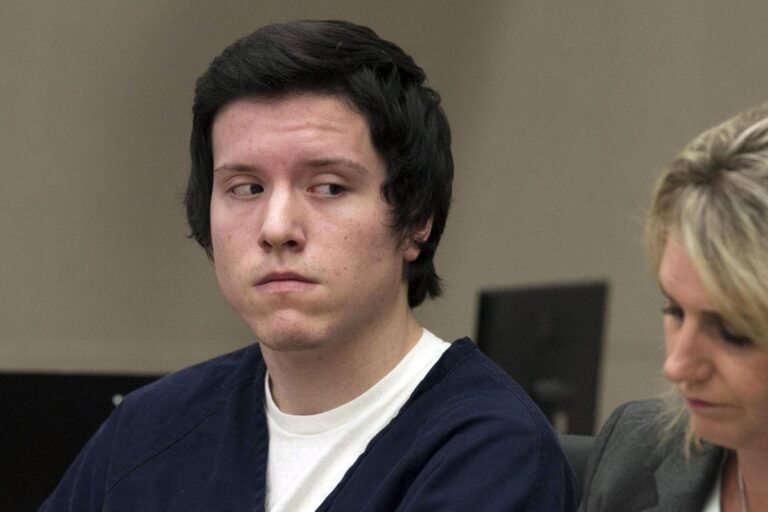The suspect in the recent California synagogue shooting has been formally charged with 109 federal civil rights and hate crime counts, marking one of the most significant legal actions taken in response to an attack on a place of worship. Federal prosecutors allege that the accused targeted the synagogue in a calculated act of violence motivated by bias, prompting an extensive investigation into the incident. This development underscores the heightened focus on prosecuting hate crimes and protecting civil rights in the wake of rising extremist violence across the United States.
Suspect Charged with Federal Civil Rights Violations and Hate Crimes in California Synagogue Attack
Federal authorities have brought 109 charges against the individual accused of the deadly attack at a synagogue in California, encompassing both civil rights violations and hate crime enhancements. The extensive indictment highlights the gravity of the offenses committed, which targeted members of the Jewish community based on their religious identity and sought to intimidate through violence and terror. Prosecutors emphasize that the charges reflect a coordinated assault not only on individuals but on the constitutional protections that safeguard freedom of worship and equal treatment under the law.
Among the key charges detailed are:
- Use of a firearm to infringe on federally protected rights
- Hate crime enhancements linked to bias-motivated violence
- Obstruction of justice relating to the subsequent investigation
These charges carry significant penalties, underscoring the Justice Department’s commitment to pursuing accountability in cases of hate-driven violence. The case is being closely monitored as a barometer of national efforts to combat rising domestic extremism and protect vulnerable communities from targeted attacks.
Detailed Overview of the Legal Proceedings and Potential Penalties Facing the Accused
The suspect now confronts an extensive array of charges rooted in violations of federal civil rights statutes and hate crime legislation. These 109 counts encompass accusations ranging from interference with religious exercise, use of a firearm during the commission of a violent crime, to hate crime enhancements based on the targeted nature of the alleged offenses. The prosecution’s case seeks to demonstrate not only the act of violence but also the intent to intimidate and harm a specific religious community, which intensifies the severity of the penalties sought.
Potential penalties for these charges carry significant implications. If convicted, the accused faces a combination of life sentences and substantial prison terms without parole eligibility, reflecting the gravity of hate crimes under federal law. The sentencing guidelines provide for:
- Life imprisonment on the most severe counts linked to civil rights violations resulting in death.
- Mandatory minimum sentences for weapons charges contributing to the offense.
- Additional fines and restitution to victims and affected communities.
| Charge Type | Possible Penalty |
|---|---|
| Civil Rights Violations | Life imprisonment |
| Hate Crime Offenses | Up to life imprisonment |
| Use of Firearm in Crime | Mandatory minimum 10 years |
Impact of the Charges on Community Safety and Hate Crime Legislation
The unprecedented scale of charges in this high-profile case serves as a critical moment for community safety initiatives across the nation. By facing 109 federal civil rights and hate crime counts, the suspect’s prosecution signals a rigorous commitment by law enforcement to deter similar acts of violence. This case underscores the urgency for communities to bolster protective measures, promote vigilance, and foster stronger cooperation with authorities to counteract threats that target religious and minority groups. The multifaceted approach in charging reveals how extensively hate-motivated violence can impact collective security, pushing policymakers to re-evaluate existing safeguards and preventative protocols.
Furthermore, the breadth of the charges reflects the evolving nature of hate crime legislation, which must adapt to increasingly complex acts of domestic terrorism. This case highlights several key elements shaping current legal frameworks:
- Expanded definitions of what constitutes hate crimes, including motivations tied to race, religion, and ethnicity;
- Enhanced penalties designed to address the severe societal repercussions of hate-driven violence;
- Increased federal oversight for crimes crossing state lines or involving civil rights violations;
- Greater collaboration between local, state, and federal agencies to ensure comprehensive enforcement.
| Aspect | Impact |
|---|---|
| Community Safety | Strengthened through awareness and partnership with law enforcement |
| Hate Crime Legislation | Broadened scope and harsher sentencing guidelines |
| Judicial Precedent | Sets a legal benchmark for prosecuting multi-charge hate crimes |
Recommendations for Strengthening Hate Crime Prevention and Federal Enforcement Efforts
To enhance the effectiveness of hate crime prevention and federal enforcement, it is imperative to bolster coordination between local, state, and federal agencies. This includes establishing comprehensive data-sharing protocols and streamlined communication channels. Improved training programs focused on identifying hate-driven motives will empower law enforcement officers to respond with greater precision and sensitivity. Furthermore, community outreach initiatives must be expanded to build trust and encourage the reporting of hate crimes, especially in marginalized communities that are frequently targeted.
Federal authorities are also urged to increase investment in technology and resources dedicated to monitoring extremist activities online, where much of the radicalization takes place. Legislative reforms should aim to close gaps in existing hate crime laws by
- clarifying definitions to encompass emerging hate groups,
- providing harsher penalties for repeat offenders,
- and incentivizing local jurisdictions to prioritize hate crime prosecutions.
These measures, combined with greater oversight and accountability mechanisms, can significantly deter hate crimes and ensure justice for victims.
| Recommendation | Expected Outcome |
|---|---|
| Enhanced inter-agency communication | Faster response times and coordinated investigations |
| Expanded community outreach | Increased hate crime reporting and victim support |
| Legislative reform with clearer definitions | Stronger prosecutions and deterrence of offenders |
| Investment in digital monitoring tools | Early detection of hate groups and prevention of attacks |
Wrapping Up
As the legal proceedings advance, the case against the suspect in the California synagogue shooting underscores the enduring challenges of addressing hate crimes within the United States. The extensive federal charges reflect a determined effort by authorities to hold accountable those who target communities based on race, religion, or ethnicity. This trial will not only test the strength of civil rights enforcement but also highlight the broader societal stakes in combating hate-fueled violence. CNN will continue to monitor developments closely as more details unfold.







